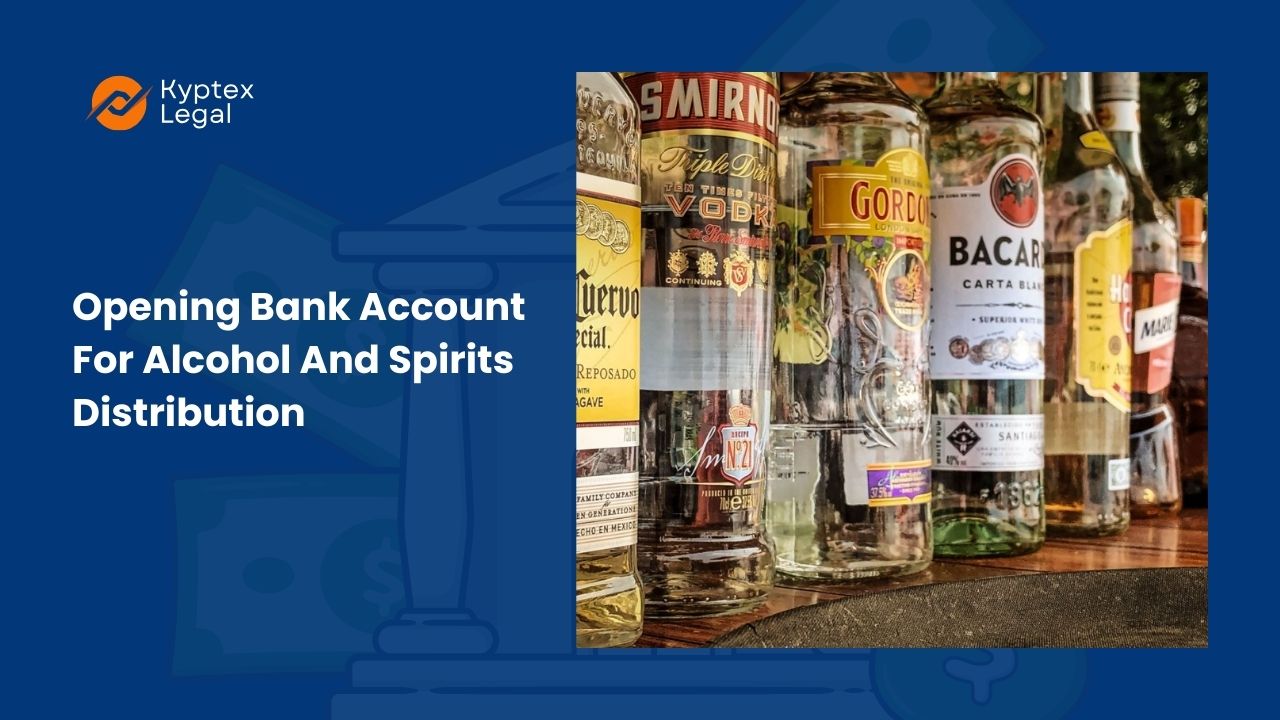
In order to ensure conformance with industry-specific regulations, manage cash flow efficiently, and facilitate cross-border transactions, it is imperative for an alcohol and spirits distribution company to establish a bank account. Complex tax payments, fluctuating tariffs, and stringent compliance requirements are among the distinctive obstacles that alcohol distribution, particularly on an international scale, encounters. Insights into the process of opening and administering a bank account that is specifically designed for the high-risk, highly regulated alcohol industry are provided in this guide.
Key Banking Needs for Alcohol Distributors
Complex transaction structures, stringent tax obligations, and significant cash flows are all managed by alcohol and spirits distribution companies. It is essential for a bank to comprehend the distinctive requirements of cross-border transactions and tax compliance when interacting with international partners.
1. Cross-Border Transactions
Frequent international payments are frequently required in the distribution of alcohol, as it frequently involves the transportation of products across borders. This necessitates a bank that has experience in the management of international currency exchanges, the mitigation of FX risk, and the provision of dependable global transaction processing.
2. Tax Compliance and Regulatory Payments
It is necessary to navigate intricate tax regulations that differ substantially by country in order to distribute alcohol. In order to prevent penalties, a distributor must guarantee that all obligations are fulfilled, including import/export duties and excise taxes.
3. High-Risk Merchant Services
The accessibility of certain services is impacted by the classification of alcohol distributors as high-risk clients by many traditional institutions, which is a result of the regulatory and legal considerations associated with alcohol sales. Alcohol distribution companies may be more effectively accommodated by specialized institutions that specialize in regulated industries.
Steps to Open a Bank Account for Alcohol Distribution
1. Choose a Bank Familiar with Regulated Industries
Alcohol distribution poses a potential risk that not all banks are willing to assume. Seek financial institutions that have experience in regulated industries or those that specialize in high-risk sectors.
2. Prepare Comprehensive Documentation
It is probable that banks will request comprehensive documentation to evaluate the financial structure and legitimacy of the business. Be prepared with the necessary legal licenses for alcohol distribution, projections, records of sales and tax compliance, and a business plan.
3. Evaluate International Banking Features and Fees
International distributors should prioritize banks that provide secure, rapid, and cost-effective cross-border payments. Banks that offer specialized services for managing large-scale international transactions can assist in the reduction of currency fluctuation risks and the optimization of payment processes.
Handling Complex Tax and Compliance Payments
Managing intricate tax requirements across multiple jurisdictions is one of the most significant challenges faced by alcohol distributors. The following is a method by which distributors can navigate these obligations:
1. Establish Automated Payment Systems for Tax Compliance
Incorporate automated tax payment features, such as wire transfers or ACH arrangements, to effectively fulfill recurring tax obligations. This can minimize penalties by decreasing the likelihood of delayed or late payments.
2. Work with Tax Professionals for Cross-Border Compliance
The tax regulations for alcohol distribution are highly variable across countries, necessitating a comprehensive understanding of import/export duties, excise taxes, and reporting requirements. Collaborate with an international tax advisory firm to guarantee that all regional tax obligations are precisely met.
3. Maintain Compliance Records
Ensure that all regulatory payments and transactions are securely stored and organized. Periodic compliance audits may be requested by numerous international institutions, and the implementation of well-documented records can facilitate this process.
Managing FX Risk in Cross-Border Trade
The profitability of international alcohol distributors is influenced by the fluctuating currency exchange rates. The following are methods for managing foreign exchange risk:
– Forward Contracts and Hedging
Collaborate with financial institutions that provide currency hedging tools and forward contracts to secure advantageous exchange rates. The risk of currency fluctuations affecting profit margins on large international orders is reduced by this method.
– Multi-Currency Accounts
Establish multi-currency accounts to facilitate cross-border transactions and retain funds in various currencies. This alternative minimizes currency-related losses and reduces the necessity for frequent conversions, thereby reducing exchange fees.
Partnering with the Right Bank for Alcohol Distribution
For an alcohol distributor, a bank that possesses a comprehensive tax and compliance support system, a strong international banking network, and expertise in managing high-risk industries is indispensable. Distributors can concentrate on growth by partnering with a banking partner who can facilitate streamlined cash flow, efficient cross-border payments, and compliance with international tax laws. For a current list of digital banks that can provide bank accounts for alcohol distribution businesses, please complete our contact form with your information. We will send the list to you via email.
Conclusion
The establishment of a bank account for the distribution of alcohol and beverages necessitates meticulous planning and the selection of a banking partner who is well-versed in the complexities of high-risk, international businesses. Alcohol distributors can establish a strong foundation for long-term success in the global market by proactively addressing tax, compliance, and currency exchange challenges.